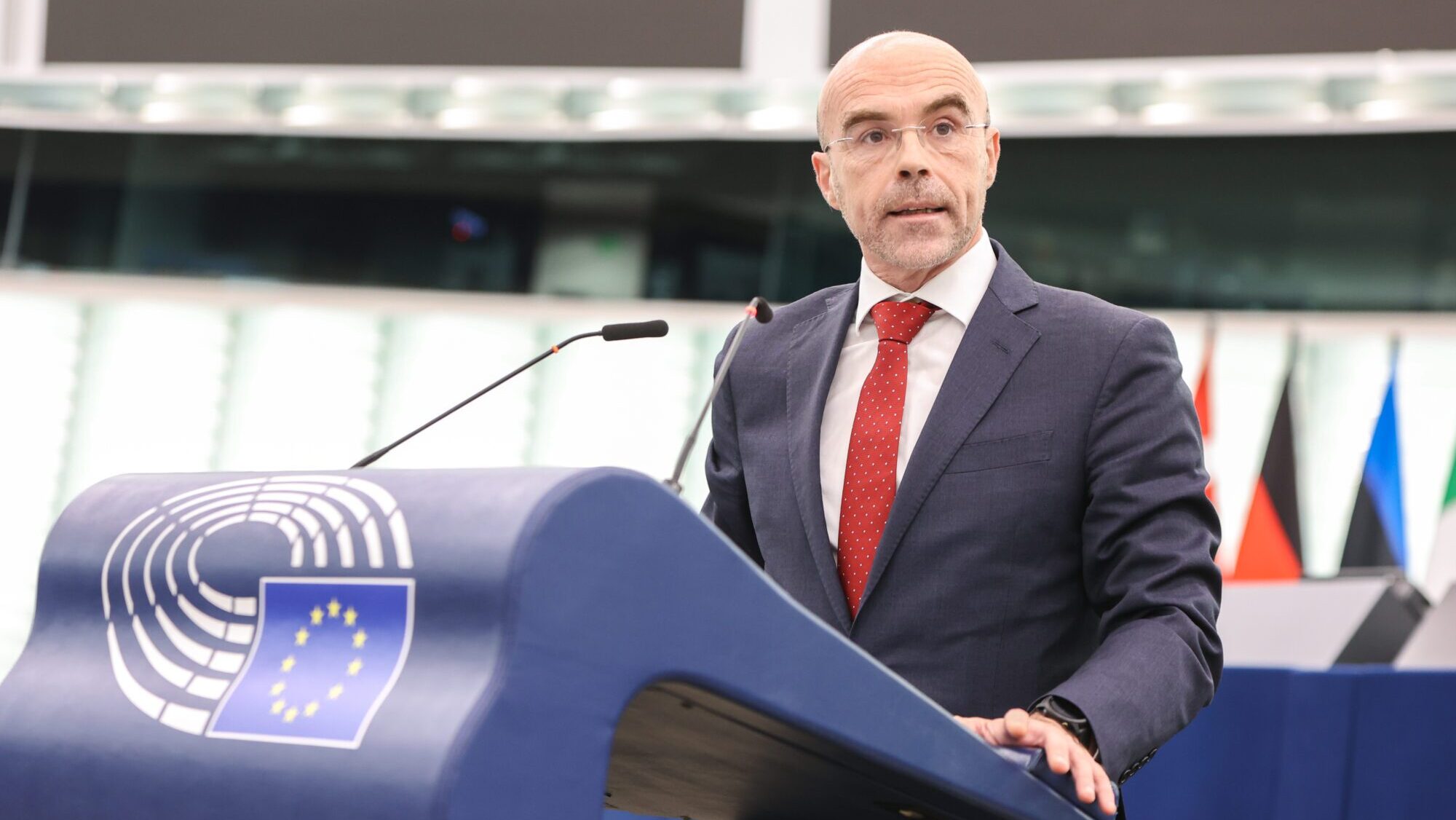There was a tumultuous reception for Spanish Prime Minister Pedro Sánchez at the European Parliament in Strasbourg on Wednesday afternoon as the embattled socialist leader took to the podium to contest claims that he and his PSOE party are running roughshod over the rule of law with his amnesty deal with Catalan separatists.
Sánchez had originally been expected to sell his country’s record during the final months of the Spanish Council Presidency but instead lashed out at “populists” during his address to the Parliament.
Spanish protesters welcoming PM Sanchez in Strasbourg with the chant:
— Visegrád 24 (@visegrad24) December 13, 2023
“PSOE & Sumar, friends of Hamas”
Israel asked the Spanish Ambassador to leave Israel for the anti-Israeli position taken by PM Sanchez & his PSOE party following the Oct. 7 Massacre
Via @revuelta_espic.twitter.com/BWZpXpKLTx
Sánchez took specific umbrage with Manfred Weber, leader of the centrist EPP, accusing him of “opening the door” to the ‘extreme Right’ through an apparent willingness to do deals with national populists rather than the Left.
Weber and MEPs from the conservative ECR and ID groups responded in kind, pointing out the naked rule of law hypocrisy of Sánchez seeking to bend Spanish law to facilitate a political pact with Catalan separatists in a bid to stay in power.
Over the past few weeks, Spain has seen significant protests over concessions made to the Catalans by the Sánchez government. These concessions were made in exchange for potential support to secure another term in office for the socialists. Nationalists are enraged, viewing the deal as a sale of national unity to the highest political bidder.
VOX MEP Jorge Buxadé was the most vocal of Sánchez’s detractors. He described the Spanish PM as one of the most dysfunctional leaders in modern European history, adding that Spain was evolving into a modern tyranny in light of the police crackdown on protests.
Jorge Buxadé retrata a Pedro Sánchez en Estrasburgo: «Pasará a la historia como el presidente que no pudo caminar por las calles de España por miedo al pueblo español. Frente al tirano, movilización permanente»
— La Gaceta de la Iberosfera (@gaceta_es) December 13, 2023
Por Agustín Benito (@agusbenito)https://t.co/M1bcg8Nul2 pic.twitter.com/mwvqENNks5
Over the past month, Weber and his normally tame EPP centrists have been leading the charge in alliance with more conservative factions in the Parliament. They could potentially initiate rule of law proceedings at an EU level.
The move against Sánchez may be a sign of things to come. There are calls for the EPP to cooperate with political groups further to the right in the Parliament as the potential for a grand coalition of the Right beckons after next year’s European elections.







